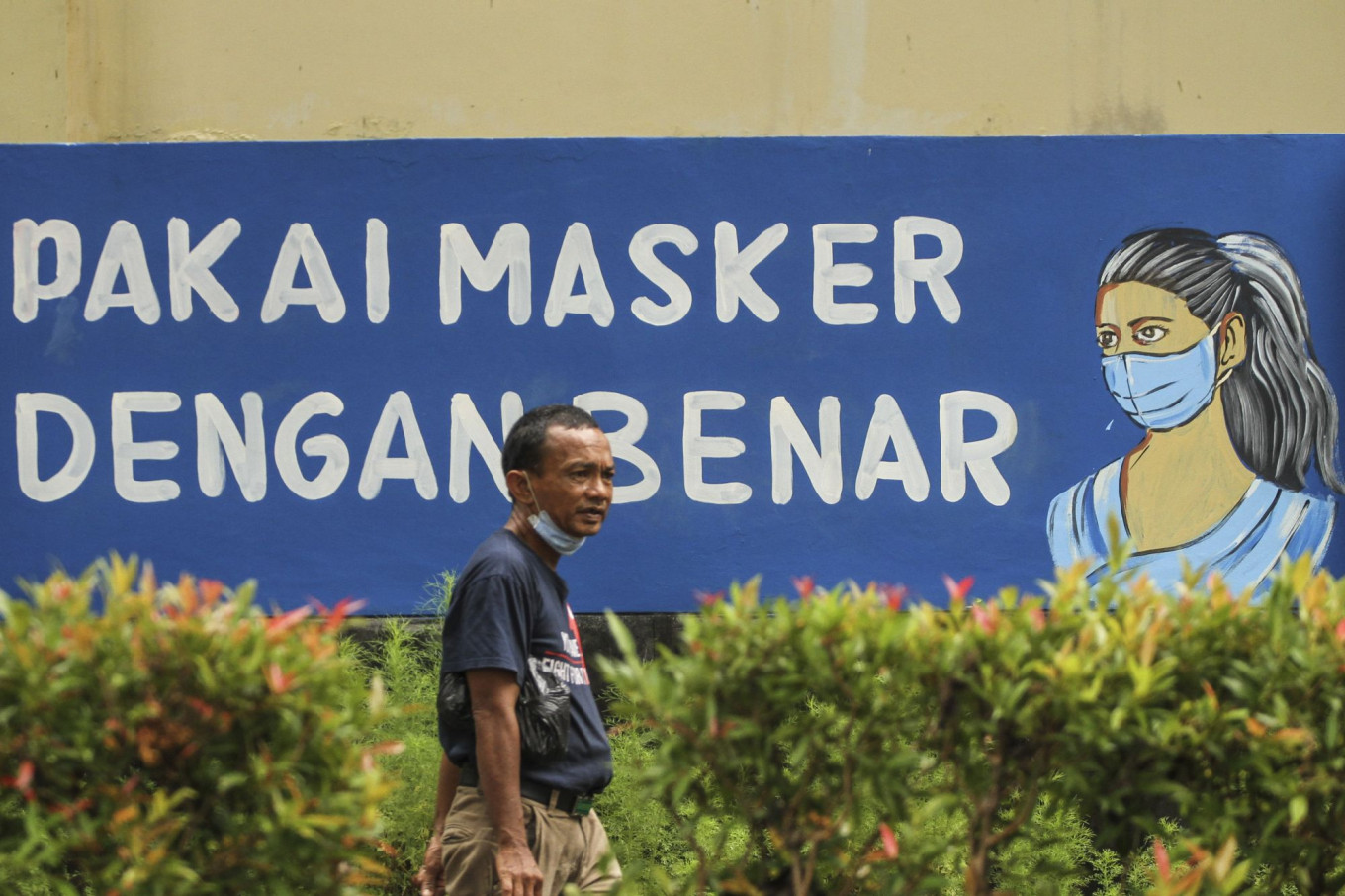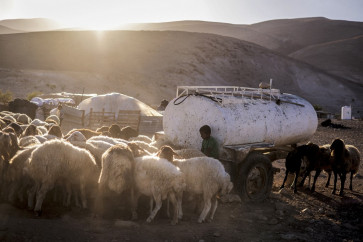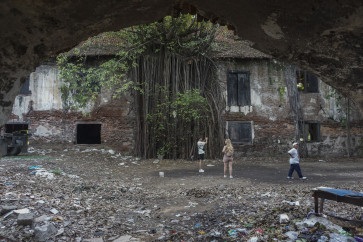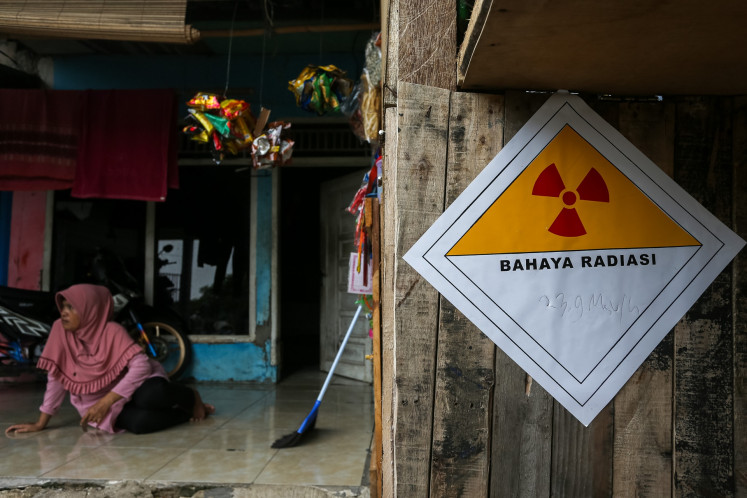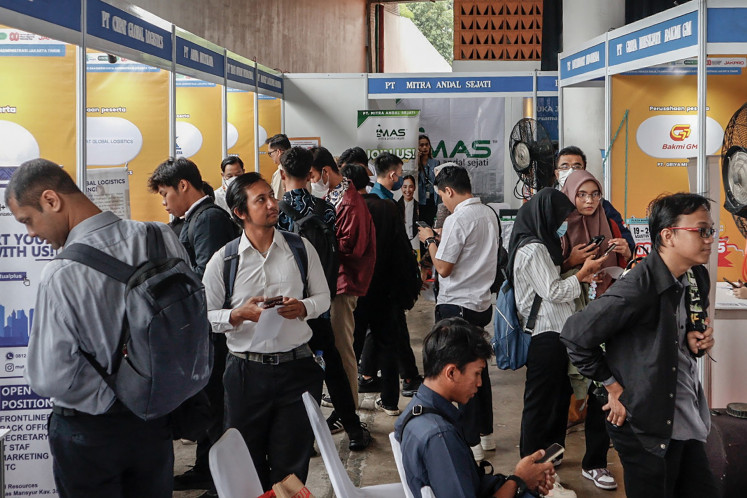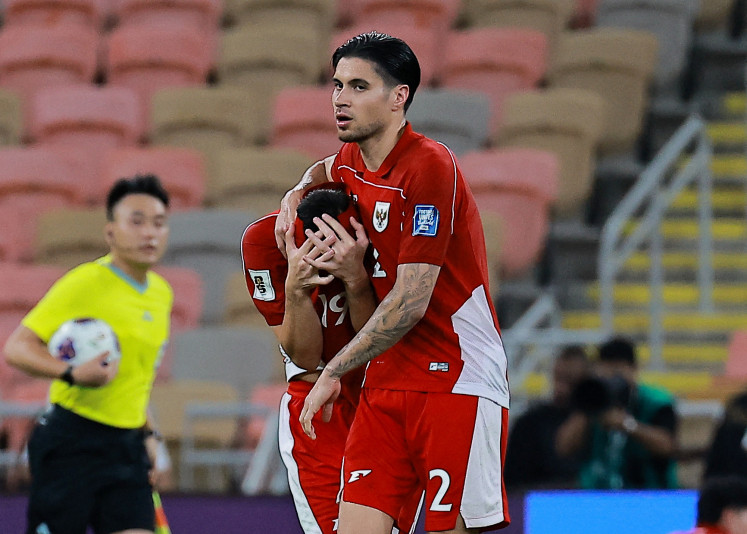Popular Reads
Top Results
Can't find what you're looking for?
View all search resultsPopular Reads
Top Results
Can't find what you're looking for?
View all search resultsCase spike leads to curbs in Java, Bali
Indonesia reimposes and expands social restrictions but experts say measures too little, too late.
Change text size
Gift Premium Articles
to Anyone
W
ith the country facing a resurgence of coronavirus cases, recording its highest daily rise in infections ever with 8,854 cases on Wednesday, the government has announced a plan to impose stricter social restrictions throughout Java and Bali islands.
Coordinating Economic Minister Airlangga Hartarto announced after a limited Cabinet meeting with President Joko “Jokowi” Widodo on Wednesday that the government would further limit public activities of more than 140 million people on the two islands from Jan. 11 to 25. “This is not a ban but a restriction on public activities,” the minister said after the meeting.
The announcement came as the country was preparing to commence its mass inoculation drive and as dozens of countries around the world were imposing new rounds of lockdowns amid resurging cases partly triggered by a new and more contagious variant of the virus.
The social restrictions will be imposed in certain provinces, regencies and cities in accordance with a 2020 government regulation outlining partial lockdown measures, known as large-scale social restrictions (PSBB), as stipulated under the 2018 Health Quarantine Law.
The Home Ministry will soon issue a circular ordering all regional leaders to determine areas that meet the criteria for the restrictions: a fatality rate above the national average of 3 percent, a recovery rate below the national average of 82 percent, active cases above the national average of 14.2 percent and hospital filling above 70 percent.
“All provinces in Java and Bali have met one of the four established parameters,” Airlangga said.
The restriction measures will include a work from home policy for 75 percent of workers, online learning, reduced capacity and operational hours for shopping centers, restaurants, public transportation and places of worship and a halt on social and cultural activities. The government will also deploy security personnel to ensure the implementation of health protocols.
Opening Wednesday’s meeting, President Jokowi asked governors to intensify the enforcement of health protocols to curb the virus spread. The President, however, also called on local governments not to hinder investment eff orts and asked the governors to secure big investments in their regions to close the gap between domestic funding capacity and needs for national development during the pandemic.
The government plans to start the vaccination program next week, with President Jokowi scheduled to take the fi rst jab even though the Food and Drug Monitoring Agency (BPOM) has yet to issue an emergency authorization for a vaccine.
Indonesia has set an ambitious target of completing the mass inoculation within 15 months for more than 181 million people. On Tuesday, the President asked Health Minister Budi Gunadi Sadikin if it could be done faster — within less than a year.
Health experts said they welcomed the government’s new policy to curb the spread of the virus but added that it was perhaps too late and too little. Other countries have reimposed full lockdowns after recording a new spike in the infection rate, while Indonesia chose to rely on merely campaigning for the public to follow health protocols.
Epidemiologist Windhu Purnomo of Airlangga University’s School of Public Health said Indonesia had wasted its “golden period” to contain the virus in the first three to four months of the pandemic by choosing to juggle between priorities for health and the economy.
“In the first months, cases continued to rise along with massive violations and poor handling of the semi-lockdown, while the severity of cases that we have seen might only be the tip of the iceberg,” he told The Jakarta Post on Wednesday.
The public, Windhu said, may already be experiencing pandemic fatigue and would be less likely to abide by the new social restrictions.
Panji Hadisoemarto, an epidemiologist at Padjadjaran University in Bandung, West Java, concurred with Windhu, saying the government refrained from imposing large-scale and stricter social restriction rules because it feared the economic consequences
“The decision to apply a largescale social restriction policy throughout Java and Bali is not an easy or popular one, but it is more proper from a disease control perspective. Of course, the results will still depend on the implementation,” he said.
Elina Ciptadi, cofounder of crowdsourced database KawalCOVID-19, said the success of the new measure would much depend on the specifics of its enforcement, including monitoring procedures and clear consequences for companies that diverged.
“Countries in similar circumstances to Indonesia, such as the Philippines and India, have successfully flattened their curves by carrying out various restrictions while conducting aggressive mass testing, tracing and isolation,” she said.
“Until the restrictions are strictly enforced without cherry picking and the government aggressively multiplies the test-tracing-treatment capacity, such restriction policies will only be empty words.”

